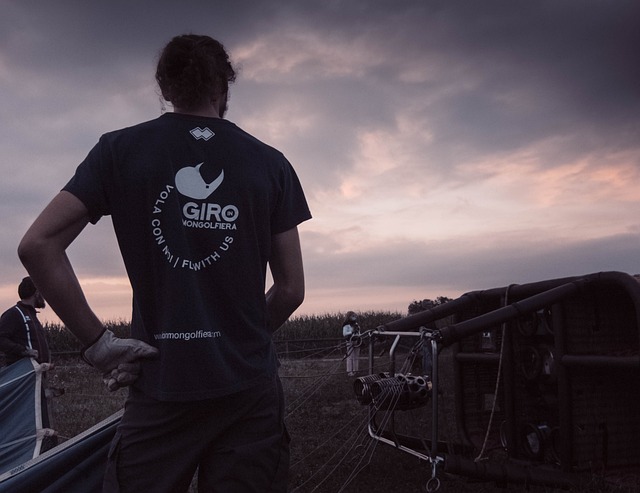The Role of Travel Agencies in Sustainable Tourism
Sustainable tourism is an evolving concept that promotes responsible travel practices, supporting local economies while preserving the environment and cultural heritage of destinations. As the demand for responsible travel continues to grow, travel agencies play a critical role in shaping and promoting sustainable tourism. These agencies can bridge the gap between travelers and the principles of sustainability, ensuring that travel experiences are both enjoyable and earth-conscious. This article explores the multifaceted role of travel agencies in fostering sustainable tourism practices.
Understanding Sustainable Tourism
Sustainable tourism is defined as tourism that meets the needs of present tourists and host regions while protecting and enhancing opportunities for the future. It considers environmental, economic, and socio-cultural factors. The essence of sustainable tourism lies in balancing the enjoyment of travel with its potential impacts on the planet and local communities. This necessitates a transformation in how travel agencies operate, encouraging more responsible practices and habits.
The Evolving Role of Travel Agencies
Travel agencies have traditionally focused on selling vacation packages and ensuring a seamless travel experience. However, the rise of environmentally-conscious travelers has prompted agencies to evolve their roles significantly. Travel agencies are now tasked with educating clients about the impact of their travel decisions, promoting eco-friendly options, and collaborating with local businesses working towards sustainability. This paradigm shift allows travel agencies to act not only as facilitators of travel but also as advocates for responsible tourism.
1. Educating Travelers
One of the primary roles of travel agencies in sustainable tourism is education. Agencies can inform travelers about the environmental and social implications of their travel choices. By providing information on local cultures, ecosystems, and conservation efforts, travel agencies empower travelers to make informed decisions. This includes sharing insights about the carbon footprint of air travel, the importance of respecting wildlife and habitats, and the cultural significance of local customs and traditions.
2. Promoting Eco-Friendly Options
Travel agencies can curate travel experiences that prioritize eco-friendliness. This includes selecting accommodations that practice sustainable methods, such as energy conservation, waste reduction, and local sourcing of food. Travel agencies can also highlight tour operators that engage in responsible wildlife tourism or community-led initiatives. By promoting these eco-friendly options, travel agencies encourage consumers to prioritize sustainability in their vacation choices.
3. Partnering with Local Businesses
Collaboration with local businesses is another vital aspect of sustainable tourism. Travel agencies can create partnerships with local providers who adhere to sustainable practices. This can include local guides, eco-lodges, and restaurants that support local farmers. By directing their clients to these businesses, travel agencies facilitate economic benefits for local communities while ensuring that tourists receive authentic, meaningful experiences.
4. Supporting Community-Based Tourism
Community-based tourism allows travelers to engage directly with local communities, fostering cultural appreciation and mutual understanding. Travel agencies can promote community-based initiatives, such as home-stays, workshops, and cultural exchanges, which enable tourists to immerse themselves in the local way of life. This not only contributes to the preservation of cultural heritage but also aids in economic development for the host community.
5. Encouraging Responsible Travel Behavior
Travel agencies can advocate for responsible travel behavior among their clients. This includes educating travelers on the principles of “Leave No Trace,” encouraging them to minimize their ecological impact during their journeys. Providing packing lists that emphasize eco-friendly products, encouraging the use of public transport, and promoting practices such as recycling can all contribute to reducing the negative impact of tourism on the environment.
Innovative Approaches to Sustainable Tourism
To effectively champion sustainable tourism, travel agencies are adopting various innovative approaches and tools. These techniques not only make travel more sustainable but also enhance the overall experience for travelers.
1. Leveraging Technology
Technology has transformed the way travel agencies operate, enabling them to offer more sustainable options. Utilizing digital platforms allows agencies to easily showcase eco-friendly accommodations and excursions. Furthermore, advanced analytics can help agencies track the environmental impact of different travel options, allowing them to guide clients toward more sustainable choices. Online booking systems can also facilitate carbon offset programs, enabling travelers to compensate for their emissions.
2. Offering Customizable Packages
Travel agencies can design customizable travel packages that promote sustainability. This allows travelers to select eco-friendly options that align with their values. Offering flexibility in itineraries can enable travelers to choose less-traveled paths, aiding in the reduction of over-tourism in popular areas. These packages can be tailored to incorporate local cultural experiences, wildlife conservation activities, or contributions to community projects, providing travelers with a deeper connection to their destination.
3. Utilizing Feedback Mechanisms
Gathering and analyzing customer feedback plays an essential role in promoting sustainable tourism. Travel agencies can implement surveys and feedback forms to measure travelers’ experiences and perceptions of sustainability practices during their trips. This data can inform future offerings and practices, allowing agencies to continually improve their services and emphasize sustainability effectively.
4. Engaging in Advocacy and Partnerships
Beyond individual business practices, travel agencies can play a role in advocating for overarching sustainable tourism policies. Collaborating with tourism boards, NGOs, and local governments can help amplify their efforts in promoting responsible travel practices. Agencies can also participate in industry discussions and events focused on sustainability, contributing their insights and experiences while learning from others within the sector.
Challenges and Opportunities
Despite the significant role travel agencies play in sustainable tourism, they face numerous challenges as well as opportunities for growth in this arena. Understanding these dynamics is crucial for agencies to navigate the changing landscape of travel effectively.
1. Overcoming Greenwashing
Greenwashing occurs when businesses exaggerate or falsely advertise their commitment to sustainability. Travel agencies must tread carefully to avoid associating with providers that do not genuinely adhere to sustainable practices. Thorough research, transparency, and due diligence are essential to ensure that the partners and products they promote genuinely contribute to sustainable tourism.
2. Balancing Demand with Sustainability
As sustainable tourism gains popularity, travel agencies may face challenges in balancing the high demand for experiences with sustainability ideals. This can sometimes lead to over-tourism in specific areas, which contradicts the principles of sustainability. Agencies must work strategically to promote lesser-known destinations and off-peak travel times, alleviating pressure on popular sites while still catering to travelers’ desires.
3. Engaging the Next Generation of Travelers
As millennials and Gen Z become more prominent travelers, their preferences and values shape the travel industry. Travel agencies have the opportunity to engage this demographic by promoting sustainable and socially responsible travel opportunities. Providing experiences that resonate with their values, such as volunteer opportunities and educational experiences, can influence their decision-making and create brand loyalty.
The Future of Travel Agencies in Sustainable Tourism
Travel agencies are uniquely positioned to shape the future of sustainable tourism. As awareness of climate change and the societal impacts of tourism grows, agencies that advocate for and actively promote sustainable practices will likely gain a competitive advantage in the market. By prioritizing sustainability as an integral component of their offerings, travel agencies can help to ensure that the travel industry contributes positively to global challenges, making travel a force for good.
Conclusion
The role of travel agencies in sustainable tourism is vital, serving not only to facilitate travel but to advocate for positive change. By educating travelers, promoting eco-friendly options, supporting local businesses, and encouraging responsible behavior, agencies can help cultivate a culture of sustainability in the travel industry. In doing so, they not only enhance the travel experience for clients but also contribute to the preservation of cultures and environments worldwide. As the travel landscape continues to evolve, travel agencies that embrace sustainability are poised to lead the charge toward a more responsible and impactful future of tourism.


